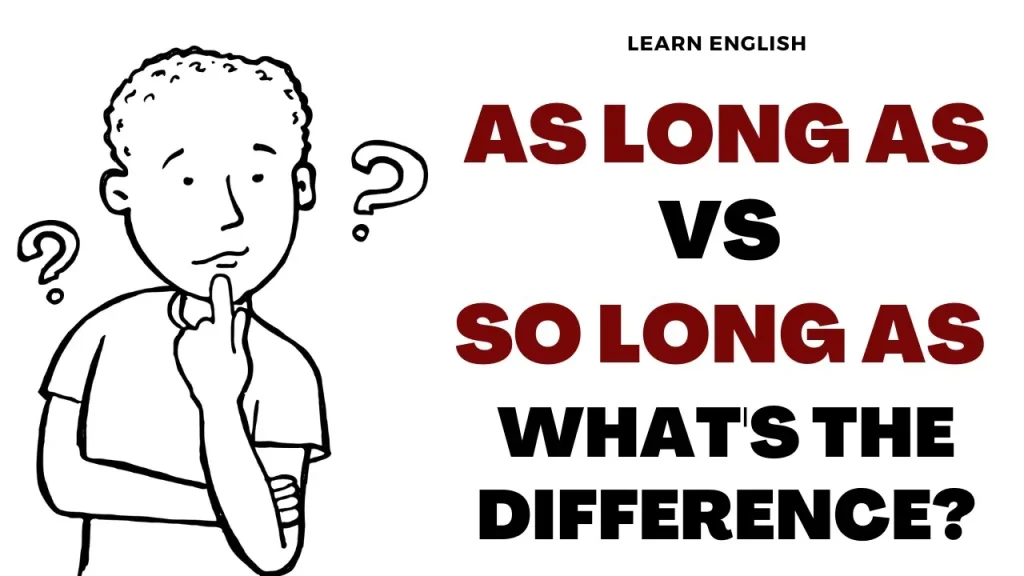
In English grammar, several phrases express conditional relationships. Two commonly used phrases are “As Long As” vs. “So Long As” While they may appear similar in meaning, there are subtle differences in their usage. This article aims to provide a detailed explanation of the distinctions between “as long as” and “so long as” to help beginners understand and use them correctly.
1. Definition and General Usage:
- “As long as“: This phrase is used to introduce a condition or requirement that must be met for something else to happen or be true. It implies that the condition must be maintained continuously or for a specified period.
Example: “You can play outside as long as you finish your homework.“
Explanation: The condition for playing outside is the completion of homework. The person can play outdoors only if they have finished their homework.
- “So long as“: This phrase also introduces a condition or requirement, but it emphasizes that the condition is sufficient or adequate for the desired outcome. It suggests that as long as the condition is met, everything else will fall into place.
Example: “You can join us for dinner so long as you’re not allergic to seafood.“
Explanation: The condition for joining the dinner is the absence of a seafood allergy. As long as the person does not have an allergy, they are welcome to join the dinner.
2. Similarities between “As Long As” and “So Long As”:
Both phrases are used to express conditions, and they are often used interchangeably in everyday speech. In many cases, the choice between the two is a matter of personal preference or regional variation. However, as we delve deeper, we will explore the nuanced differences between them.
3. Differences between “As Long As” and “So Long As”:
- Emphasis: “So long as” places more emphasis on the condition being sufficient or satisfactory. It suggests that the condition alone is enough to ensure the desired outcome.
Example: “I will support you so long as you work hard.”
Explanation: The speaker implies that they will provide support if the person works hard, emphasizing that working hard is all that is necessary.
- Duration: “As long as” emphasizes a continuous or specified duration when the condition must be maintained. It suggests that the condition is ongoing and should not change.
Example: “You can borrow my car as long as you return it by 6 p.m.”
Explanation: The condition for borrowing the car is to return it by 6 p.m. It emphasizes that the car must be returned by the specified time.
- Formality: “As long as” is generally considered more formal than “so long as.” In formal writing or academic contexts, “as long as” is often preferred.
Example: “You may participate in the study as long as you meet the eligibility criteria.”
Explanation: In formal settings, “as long as” is preferred to express conditions, such as meeting eligibility criteria.
4. Additional Considerations:
- Negation: When negating the condition, “as long as” and “so long as” behave differently.
Example:
“You can go outside as long as it’s not raining.” (Positive condition)
“You can go outside so long as it’s not raining.” (Positive condition)
“You can’t go outside as long as it’s raining.” (Negative condition)
“You can’t go outside so long as it’s raining.” (Negative condition)
- Synonyms: “Provided that,” “providing,” and “on the condition that” can be used as synonyms for both “as long as” and “so long as.”
Conclusion:
While as long as” and “so long as” share similar meanings and are often used interchangeably, they possess nuanced differences that affect their emphasis, duration, and formality. Understanding these distinctions will help beginners use these phrases effectively and appropriately in their English communications. By practicing their usage, learners can enhance their language skills and express conditional relationships with precision.